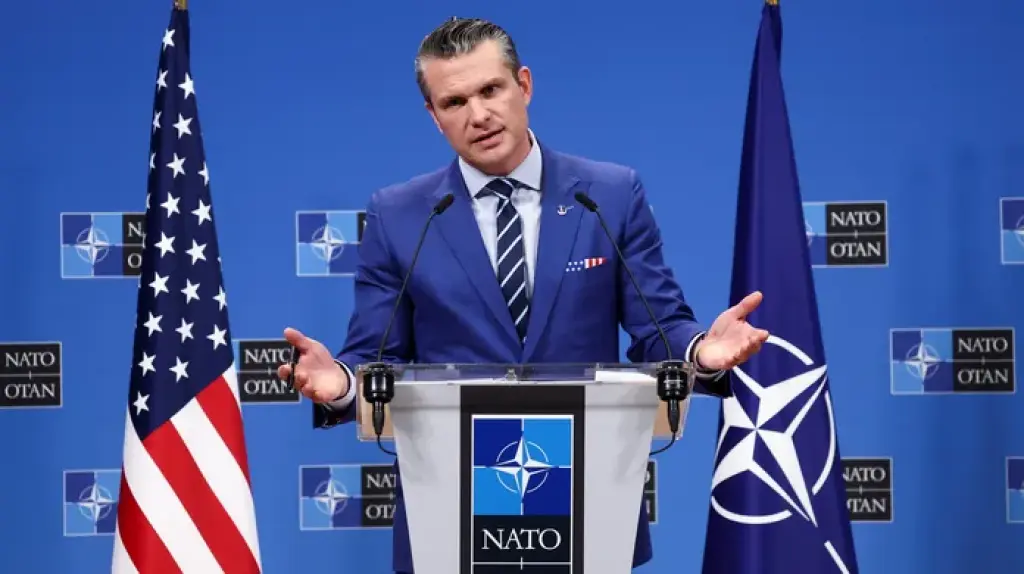Amid escalating tensions in the Middle East following US attacks on Iranian nuclear facilities, US Secretary of State Marco Rubio made a direct appeal to China on Sunday (22): to intervene with Iran to prevent the closure of the strategic Strait of Hormuz. The statement was made during an interview with the program “Sunday Morning Futures with Maria Bartiromo” on the American network Fox News. Rubio classified the possibility of a blockade of the strait as a “massive escalation” and warned of severe consequences, not only for Iran, but for the entire global economy. “I encourage the Chinese government in Beijing to contact them about this, because they depend heavily on the Strait of Hormuz for their oil,” he said. 🌍 What’s at stake: Why the Strait of Hormuz is crucial
The Strait of Hormuz, a narrow strip of sea between Iran and Oman, carries about 20 percent of the world’s oil and liquefied natural gas transported by sea. Any disruption to this route poses a direct threat to global energy security, affecting markets in Asia, Europe, and Latin America.
Last week, Iran’s state broadcaster Press TV reported that Iran’s parliament approved a resolution authorizing the possible closure of the strait — a move seen as direct retaliation for Washington’s bombings.
✈️ Military escalation: US strikes on Iran
According to sources at the US Department of Defense, the strikes against the nuclear complexes at Fordo, Natanz, and Isfahan used:
14 bunker-busting bombs, capable of penetrating underground facilities;
More than two dozen Tomahawk missiles;
About 125 military aircraft, including stealth bombers.
The Iranian government has officially acknowledged the bombings and promised to respond. However, so far, Tehran's response has been restrained — although there is growing domestic pressure for more aggressive retaliation.
⚖️ The geopolitics of oil: China's role
Marco Rubio's appeal to China is not just symbolic. The Asian country is currently the world's largest importer of oil and has Iran as one of its main energy suppliers, in addition to maintaining strong diplomatic and economic ties with Tehran.
For Rubio, Beijing would have more influence over Iran than any other Western power at this critical moment:
“If Iran closes the Strait of Hormuz, we will not be the most affected. Other economies, including China's, would suffer devastating impacts. It would be a catastrophic mistake for everyone.”
The Chinese embassy in Washington was contacted by the press, but did not respond to requests for comment by the time this article was published.
💬 “We are prepared to talk, but retaliation would be a serious mistake”
Despite his firm tone, Rubio also left room for diplomacy. According to him, the United States remains open to dialogue with Iran, as long as the Tehran regime is willing to avoid new provocations.
“We are ready to talk, but if Iran responds with aggression, it will be the worst mistake they have ever made.”
🧠 Analysis: the tension that could explode globally
The possible closure of the Strait of Hormuz is one of the most serious threats that have emerged in this new phase of the conflict. It would be seen by Washington and its allies as an act of war. In addition, it could:
Skyrocket global oil prices;
Increase the cost of energy for developing countries;
Aggravate tensions with Gulf countries and NATO;
Provoke naval military movements in the Persian Gulf.
For China, one of the main beneficiaries of the stability in energy flows, the crisis poses a dilemma: maintain strategic neutrality or take a more active role behind the scenes in global diplomacy.
📌 Conclusion
The US appeal to China reflects the new global geopolitical chessboard: Iran is strengthening as a pole of regional instability, the US seeks to contain its advance with military force and selective diplomacy, and China emerges as the possible balance of power.
The continuity of the flow in the Strait of Hormuz will be decisive not only for the outcome of this conflict, but also for the global economy — and for the balance of power in the 21st century.
 Português
Português








